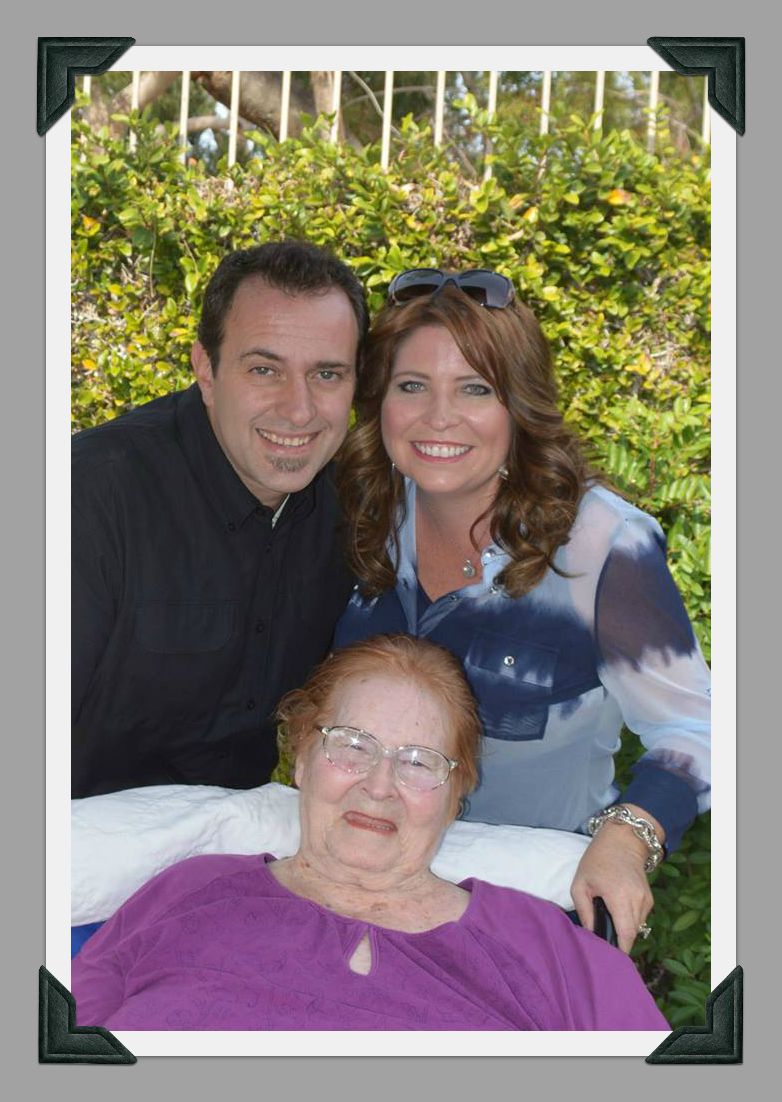When Your In-Laws Don't Respect You
Years ago, I taught my students Robert Frost’s poem, Mending Wall. One famous line from this poem is that “Good fences make good neighbors.” Most of us realize that healthy boundaries in relationships are often necessary-there’s a reason that sage Benjamin Franklin said that “Guests, life fish, begin to smell after 3 days.” Few relationships are harder to apply boundaries too than our in-laws and for good reason.
Our parents spend decades raising us, shaping us, guiding us. It can be hard for them to release us to our spouses, necessary as it is. Some in-laws simply don’t understand how much they can either foster a healthy and supportive relationship for their child’s marriage, or bring great division and harm to the union. The stress and pressure of poor relationships with our mother or father-in laws can cause frustration, anger, and bitterness-which can easily infect our marriages, and therefore our children. And sometimes, it’s our brother or sister-in-laws that can do just as much good, or harm.
As mothers, how are we supposed to navigate these complex relationships?
When I met my mother-in-law for the first time, I knew that she wasn’t going to play the kind of role I had always dreamed of. Years before I met her, she suffered several major strokes and was wheel-chair bound, living in a home for the elderly and disabled. I knew that my husband and I would serve more like parents to her, than the other way around. Still, she's been an incredible example of faith and love to me. Even though she spends her days in bed or wheel-chair bound, I have never once heard her complain. She loves her Savior and always pours that same love out towards others. But my husband also had loving older siblings who were more like parents to him, and so in some ways, I suddenly had 4 sets of protective in-laws to navigate. Their family is a close-knit bunch of loyal Italians and they have been generous and kind to us over the years and all the cousins have great affection for one another, but it wasn’t easy for me to fit in initially.
My husband Guy and I realized early on that we needed to become a strong new unit as a couple and that we could both firmly, yet lovingly, set boundaries with our in-laws on BOTH sides. That’s never easy. I have heard from hundreds of couples on this topic over the years. Many of these couples have varying issues from overly intrusive parents, to disregarding their parenting styles and requests, to extreme favoritism over their son or daughter as opposed to their new in-law. Here's a post about what to do when someone simply just doesn't like you very much.
If we choose to respond Biblically, I believe that most cases can result in peace and unity in our families.
Here are 4 things to consider:
- As spouses, we must communicate, listen, and be united as a couple about the problem with our in-laws and choose to protect our marriages above all else.
If your spouse is suffering or struggling, as a result of conflict with extended family members that should be your main priority. God instructs us to “leave” the home and authority of our parents and “cleave” to the new relationship we are building with our spouses. If your husband is not standing with you in solidarity over any particular issue, then the first matter of business is to work on your marriage-which may very well necessitate Biblical counseling.
Ultimately, if we feel secure and safe in our marriage and our spouse’s commitment to preserve our relationship and unique family goals and beliefs, than the anxiety of in-law pressures is greatly reduced. Sometimes, that means being grateful for your spouse and the new life you get to create together, instead of wasting time lamenting the dream of having ideal in-laws. Let go of the things you simply can't change.
- Ask yourself if YOUR PART in the equation looks like this:
Let no corrupting talk come out of your mouths, but only such as is good for building up, as fits the occasion, that it may give grace to those who hear. And do not grieve the Holy Spirit of God, by whom you were sealed for the day of redemption. Let all bitterness and wrath and anger and clamor and slander be put away from you, along with all malice. Be kind to one another, tenderhearted, forgiving one another, as God in Christ forgave you. (Ephesians 4:29-32)
We are to offer the same respect, honor, and Godly treatment of our in-laws as we are commanded to demonstrate to all people, regardless of how they treat us or our children. If you have sin in your own life in this area, it’s time to work on your part first.
- I like to take the confusion of making choices as a parent out of the equation by following this one cardinal rule:
Never make decisions based on FEARS or PEERS.
This applies to my in-laws too. Sometimes, moms over-discipline or give in to requests they don’t feel comfortable with when they are with extended family. We have to become very self aware and confident in OUR decisions so that we don’t behave towards our children or in-laws as a result of fear of what they will think or because we feel peer pressure to do things their way.
If this is a struggle for you, prepare yourself before you meet with them so that you have a clear image in mind of how you will behave as the wife and mom in your family, and do not give in to fear or pressure. God gave you authority over your home and children, and honoring how the Lord leads you is what matters most. Be authentically you, and if they don’t accept that, it’s okay. God accepts us just as we are and following His leading is what will bring us peace, not the approval of our in-laws.
- Just as I have talked a lot on my blog about being consistent, dropping the rope of tug-of-war with our kids, and training our children with loving-kindness, we can take a lot of the fight out of our in-law relationships in much the same way.
When my child persists over an issue and I have already communicated clearly with them, I don’t have to get angry, upset, or continue to argue with them. I can simply say something like, “Son, I understand that you want to stay up late, but as your mom I know that you need sleep and it’s now bedtime. Please go into the bathroom to brush your teeth and I will help you get dressed for bed.” They may whine and complain. And again, we can empathize and repeat our same statement of expectation, following through on our standard.
When in-laws become emotional, manipulative, or threaten our boundaries, we can respond in a similar fashion to them as we do to our wayward kids. We can calmly and kindly say to our in-laws, “I appreciate that you want to spoil our kids with sugary treats because you are loving grandparents, but John and I know that their bodies can’t handle it. We can provide snacks for you to give them that are healthy but still yummy, or we can give you a list of ones we recommend if you want to shop for them yourself. Just let us know which you prefer.” If they dishonor your repeated request, then you may need to follow up by explaining that the kids simply won’t be eating at their house. You don’t need to become embroiled or pulled into an argument or crumple under manipulation.
Eventually, it may be necessary to explain that if they simply don’t respect your decisions that you may have to come up with some creative alternatives-just as we do with our children when they don’t honor our role. It may mean that you need to take some time away from the relationship altogether, or put some more secure boundaries in place, but this should always be lovingly and clearly communicated-not an act of bitter punishment or unhealthy division.
The Bible puts it like this in Romans 12:17-18: “Do not repay anyone evil for evil. Be careful to do what is right in the eyes of everyone. If it is possible, as far as it depends on you, live at peace with everyone.”
As wives, we can either add pressure to our husband’s burden or we can cultivate peace with both sets of in-laws. Never underestimate the power of prayer and your own gracious spirit towards your spouse, your children, and your in-laws. Expect the Lord to prepare their hearts as much as yours, and ask God to give you wisdom. In-law relationships may very well be the biggest challenge you will face, but they don’t have to leave you in turmoil that negatively affects your kids. Keep doing the good parenting, entrust your commitment as a family to the Lord, and walk in faith that God will honor your desire for peace.
I’m not sure if my own in-law relationships on either side of my family will ever be what I dreamed of, but that’s okay. I choose to be grateful for the many ways that they have helped shape me and my husband. Seeking peace and pursuing it is the mark of a daughter of the King of Kings, and pleasing Him by our Godly responses to any conflict is the righteous thing to do and leads to blessing. When your mother or father-in-laws can’t be pleased, focus instead on pleasing your Heavenly Father, and you’ll never be disappointed.
SHARE: What stood out to you the most from this post? How can you work more towards being a peace-maker or better communicate your needs as a wife, mom, and daughter-in-law? Do you have wonderful in-laws? Tell us what makes them so great!
Follow me on Facebook for more inspiration and discussion! Find me on Twitter: Amber Lia and Instagram: MotherOfKnights. Start pinning on Pinterest as well!


